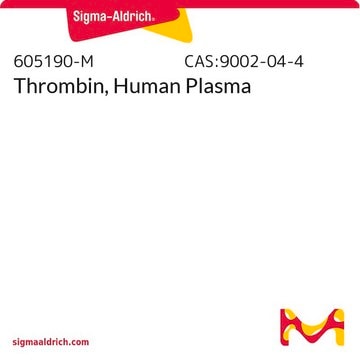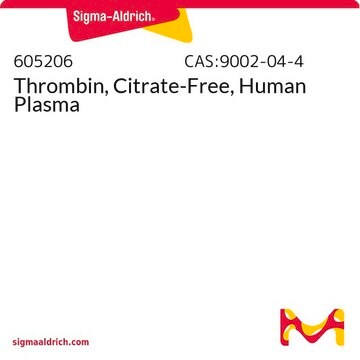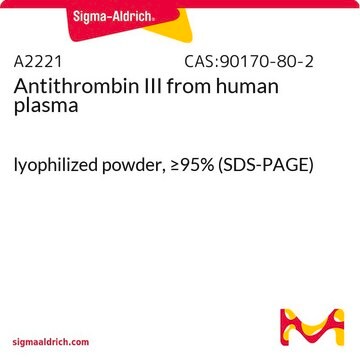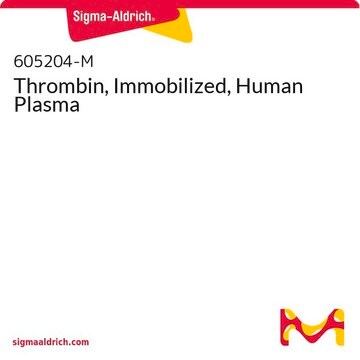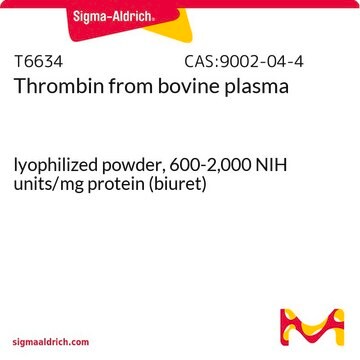T8885
Thrombin from human plasma
lyophilized powder, Suitable for routine use in the thrombin time test
Synonym(s):
Factor IIa
About This Item
Recommended Products
biological source
human plasma
Quality Level
form
lyophilized powder
packaging
vial of ≥10 NIH units
impurities
HIV, hepatitis B and hepatitis C, tested negative
UniProt accession no.
storage temp.
−20°C
Gene Information
human ... F2(2147)
Looking for similar products? Visit Product Comparison Guide
General description
Application
Biochem/physiol Actions
Unit Definition
Reconstitution
Analysis Note
Other Notes
Disclaimer
inhibitor
Signal Word
Danger
Hazard Statements
Precautionary Statements
Hazard Classifications
Eye Irrit. 2 - Resp. Sens. 1 - Skin Irrit. 2 - STOT SE 3
Target Organs
Respiratory system
Storage Class Code
11 - Combustible Solids
WGK
WGK 2
Flash Point(F)
Not applicable
Flash Point(C)
Not applicable
Regulatory Listings
Regulatory Listings are mainly provided for chemical products. Only limited information can be provided here for non-chemical products. No entry means none of the components are listed. It is the user’s obligation to ensure the safe and legal use of the product.
JAN Code
T8885-1VL:
T8885-PH:
T8885-BULK:
T8885-VAR:
T8885-25VL:
T8885PROC:
T8885-10VL:
Certificates of Analysis (COA)
Search for Certificates of Analysis (COA) by entering the products Lot/Batch Number. Lot and Batch Numbers can be found on a product’s label following the words ‘Lot’ or ‘Batch’.
Already Own This Product?
Find documentation for the products that you have recently purchased in the Document Library.
Customers Also Viewed
Our team of scientists has experience in all areas of research including Life Science, Material Science, Chemical Synthesis, Chromatography, Analytical and many others.
Contact Technical Service







